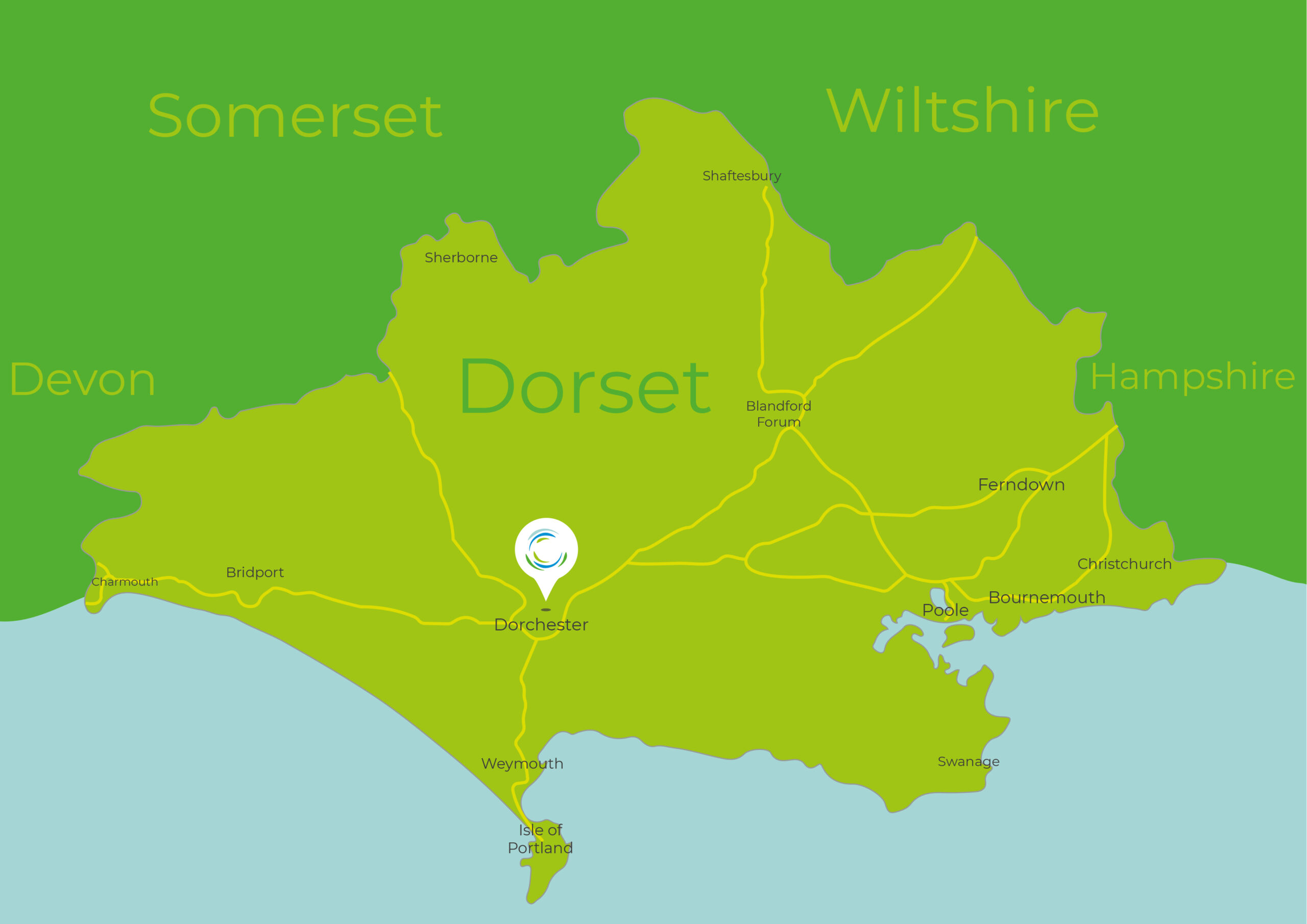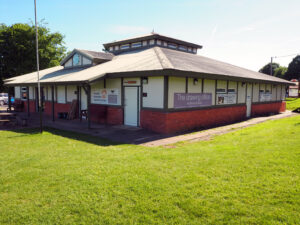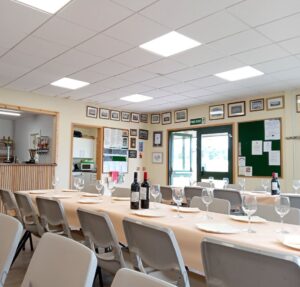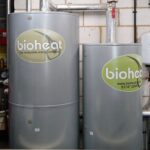Prior to this project the heating and hot water in the pavilion were provided by gas and night-storage radiators at a cost of around £5,800 a year.
Inspired by the Powering Parks report produced by ‘We are Possible’, Dorchester Town Council were keen to explore how they could use the large green space next to their building to decarbonise their heat demand.
Powering Parks highlights the potential to take heat from the ground under green spaces and parks and use it to warm surrounding buildings. This is done using a ground-source heat pump which extracts the low temperature ambient heat from the ground, concentrates it, and then pumps it into buildings to warm them. This simple video explains how: https://youtu.be/-U7UYgz1NOg.
Heat pumps run off electricity and are very efficient – for every unit of electricity you put in you get up to five units of heat out. The installation of a ground-source heat pump at the pavilion eliminates the need for gas and uses far less electricity than the night-storage radiators it is replacing. It is expected that this new heating system will reduce the pavilion’s energy demand by over 20,000 kilowatt hours a year, saving the town council around £5,100* in energy bills and reducing the footprint of the building by an estimated 11 tonnes of CO2e annually.
As heat pumps are classed as renewable energy and the install happened before March 21, the town council are also able to claim Renewable Heat Incentive (RHI) payments for the renewable energy their heat pump produces. It’s estimated that they will receive around £2,100 a year for this (please note this scheme has now closed to new applicants).
There are currently only a handful of public parks in the UK that are exploiting their ground heat – and Dorchester Town Council hope that this project will help champion heat-pump technology and inspire others to tap into this opportunity for low-carbon heat.



 In the spring of 2021, Dorchester Town Council carried out a deep retrofit of their cricket pavilion. The project included installing a borehole-supplied ground-source heat pump (GSHP) with a new internal radiator system, additional roof insulation and new LED lighting. The town council also invested in a water borehole for cricket pitch watering.
In the spring of 2021, Dorchester Town Council carried out a deep retrofit of their cricket pavilion. The project included installing a borehole-supplied ground-source heat pump (GSHP) with a new internal radiator system, additional roof insulation and new LED lighting. The town council also invested in a water borehole for cricket pitch watering. To reach their net-zero target, it is important that the town council also focuses on the energy efficiency of their buildings. By improving energy efficiency this will reduce the amount of renewable energy they need to source.
To reach their net-zero target, it is important that the town council also focuses on the energy efficiency of their buildings. By improving energy efficiency this will reduce the amount of renewable energy they need to source.


















